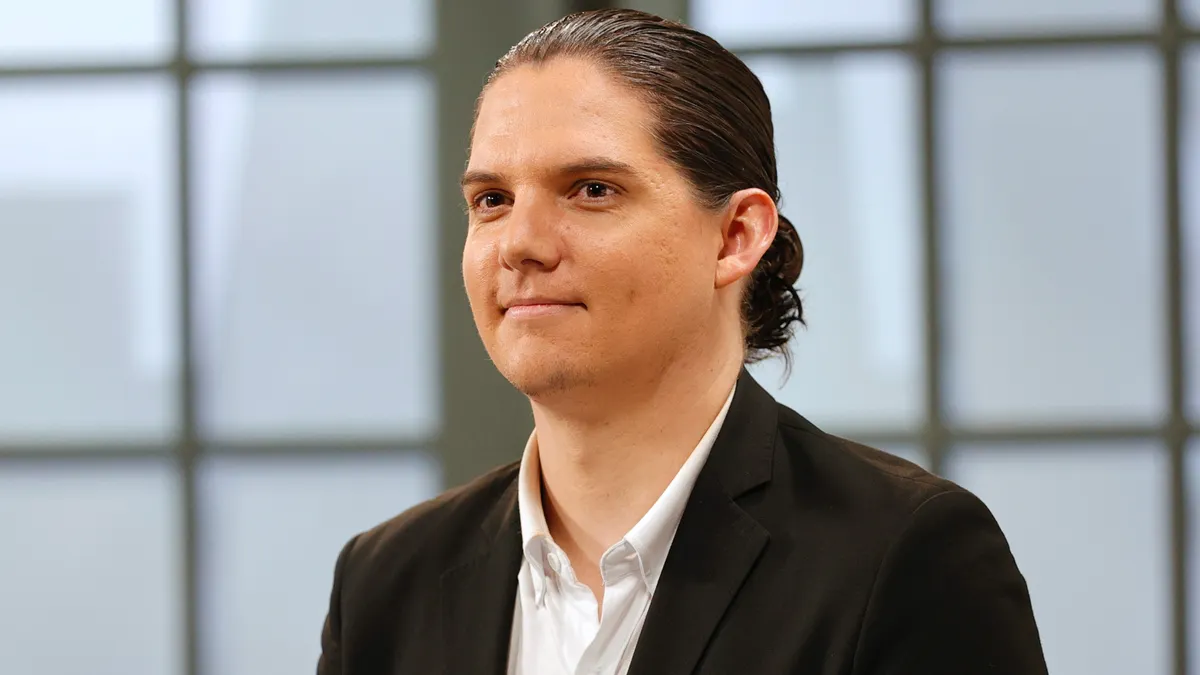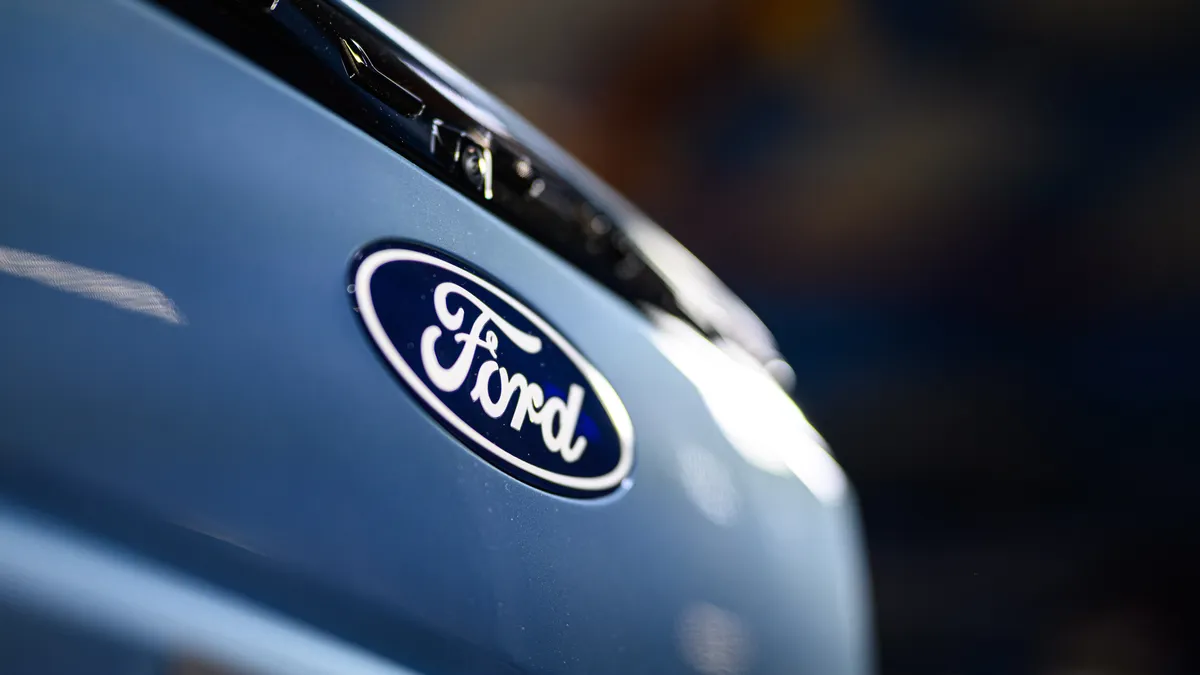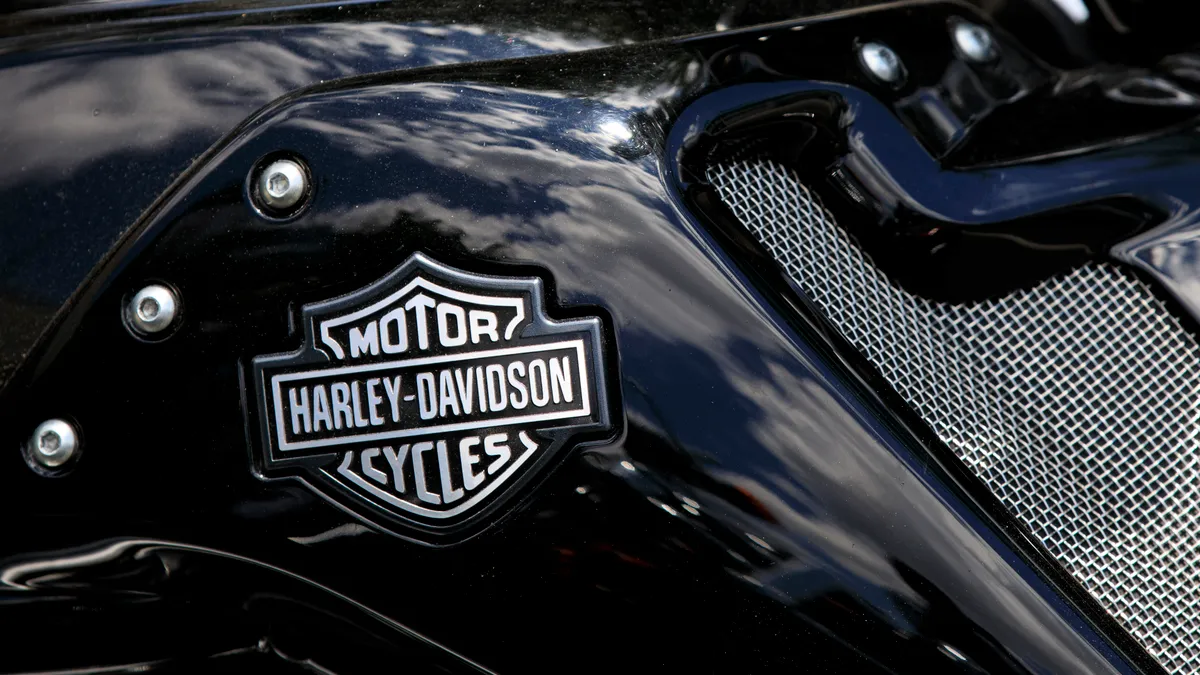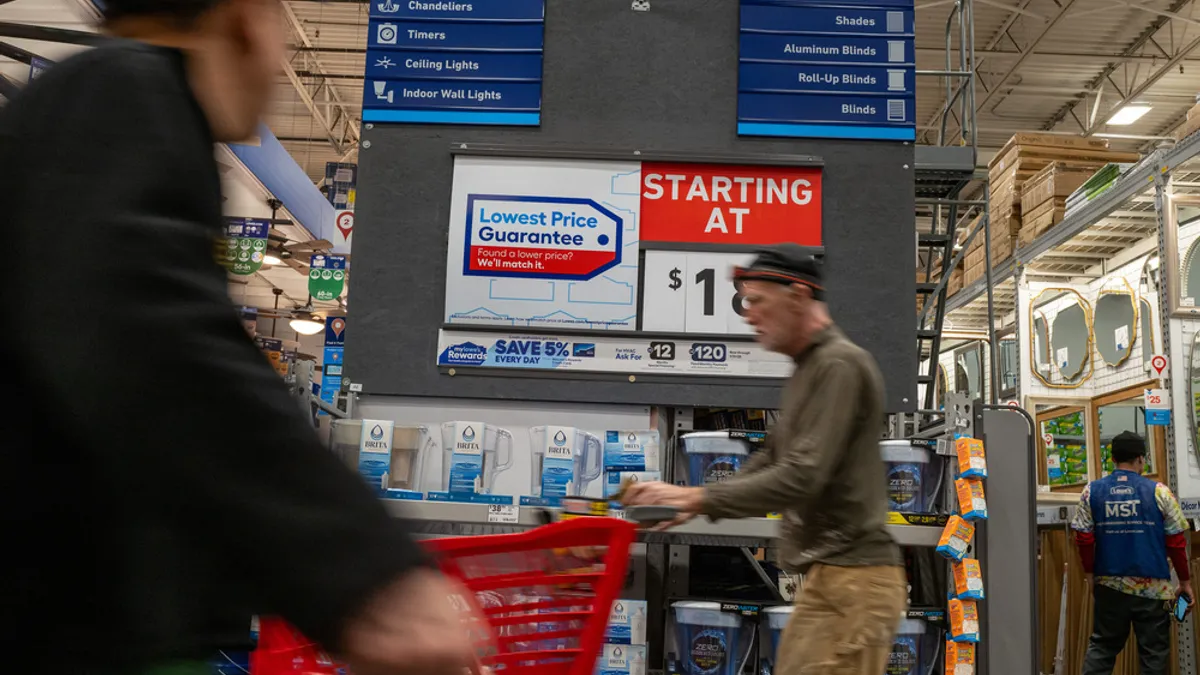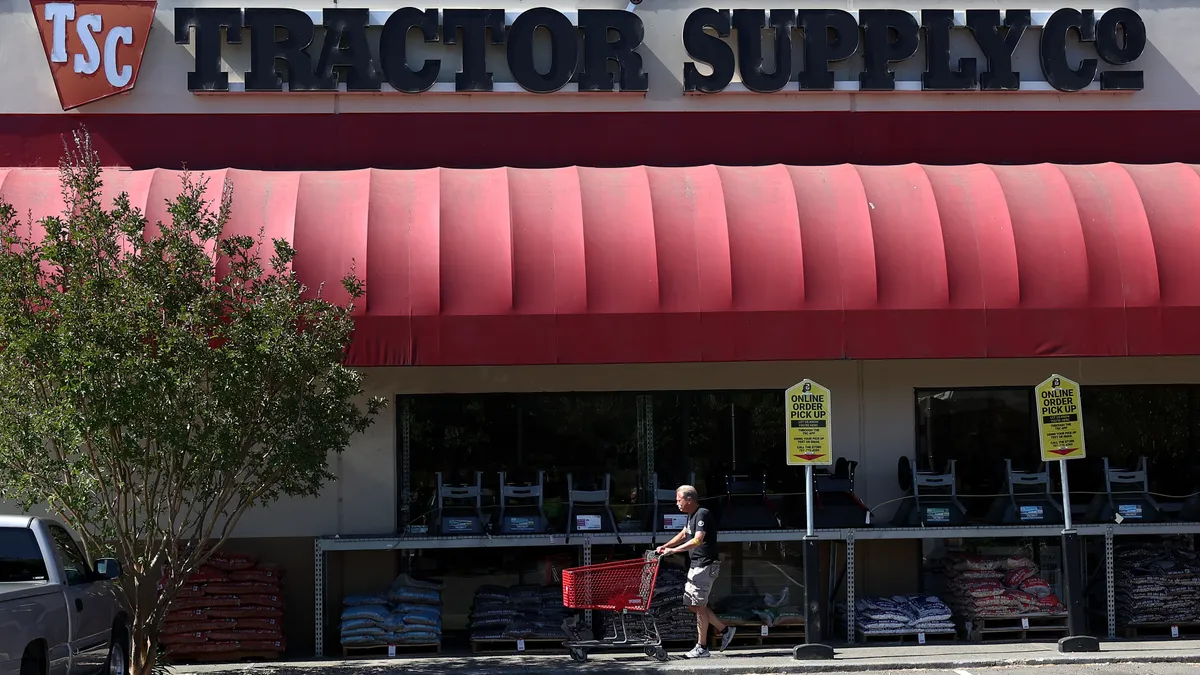Much has been made of the recent rollbacks of diversity, equity and inclusion efforts at Fortune 500 companies such as John Deere and Target — and many HR practitioners had something to say about SHRM, the largest HR professional organization in the U.S., dropping the “E” from its DEI programming.
Now, Robby Starbuck, a conservative influencer who called DEI “poison” and took credit for Ford, Harley-Davidson, Jack Daniels’ parent company, Lowe’s, Tractor Supply and Walmart dismantling their DEI programs, is scheduled to sit on a panel at SHRM Blueprint, the October conference that is replacing SHRM Inclusion.
Many HR professionals took to LinkedIn to condemn SHRM’s choice, building on previous mixed reactions to the conference name change. Other industry stakeholders expressed similar concerns, telling HR Dive that Starbuck’s presence doesn’t make sense for the conference, which is slated to host inclusion advocates and others speaking on topics such as “building belonging” and driving “meaningful outcomes in inclusion and diversity.”
A concerning development, according to DEI pros
SHRM announced Starbuck and Van Jones, a left-learning commentator, as panel speakers in a Sept. 9 press release. The statement re-emphasized Blueprint’s pillars of “legally compliant, workplace unifying, and business accretive diversity.” SHRM’s president and CEO, Johnny C. Taylor, is slated to moderate.
Joseph Riddle, director of consultancy Neurodiversity in the Workplace, told HR Dive that he had already been disappointed to see SHRM lose its Inclusion moniker. Starbuck’s presence on a panel is an extension of that, he told HR Dive, “but I feel like it goes too far.”
Riddle said he had planned to buy a ticket to SHRM Blueprint’s conference, which will take place in Louisville, Kentucky — “and then I saw that Robby Starbuck was going to be speaking.”
Responding to reports of outrage in the HR industry, SHRM’s president told HR Dive via email, “Viewpoint diversity is one of the major, but often under-discussed, dimensions of workplace diversity. At SHRM, we are committed to fostering inclusive, respectful dialogue by engaging a broad spectrum of perspectives — including those of Van Jones and Robby Starbuck — to reflect the diverse viewpoints that shape our nation and the world of work.”
Stakeholders decry ‘extremist viewpoint’
HR professionals and other stakeholders, however, said platforming Starbuck amounted to a false equivalency.
SHRM will “legitimize and validate his perspective” by putting Starbuck on stage, said Michael Baran, CEO of global DEI consulting firm Iris inclusion.
“Inevitably, it sets up this dynamic where they're acting like there are two opposite respectable positions here, and they're giving him credit for having one of those,” Baran said. “It's not in good faith.”
Riddle, of Neurodiversity in the Workplace, expressed a similar view. “When you widen that frame and zoom out a little bit, you start to include perspectives that are not really part of the conversation. It degrades the debate,” Riddle said.
It’s perfectly valid to look at both sides of an argument, he continued, “but the argument that SHRM should be having at the Blueprint conference is maybe more along the lines of, ‘What strategies of DEI are working, vs. not working?’ That's valid framing. Not, ‘Should we abolish the practices of including people in our societies and our workplaces?’”
When “you zoom out to include this extremist viewpoint, it's no longer a valid debate and you lose the ground of the debate entirely by doing that,” Riddle added.
DEI strategist Felicia A. Henderson, who also lectures at INSEAD Business School, told HR Dive that when Starbuck was announced as a panelist, she was “disappointed but not shocked, because SHRM has been abdicating its leadership in advancing corporate DEI.”
Starbuck’s ideas are “antithetical to evidence-based HR best practices and inclusive cultures,” she said, and SHRM platforming the conservative influencer “may give an allure of legitimacy to Starbuck's ideas.”
Neither Starbuck nor his co-panelist, Jones, responded to a request for comment.
Some question Starbuck’s qualifications, allegiances
“Robby Starbuck, as far as I can tell, has no actual experience in publicly traded corporations. He doesn't have business training or legal training,” Nancy Levine Stearns, whose nonprofit organization Impactivize is known best for tracking anti-DEI shareholder proposals, told HR Dive.
Stearns, who spent decades in talent acquisition, said speaking “as a recruiter, his resume wouldn't have gotten to the next stage.”
Her background includes HR at American Express and Deutsche Bank, and because of her experience, Stearns thinks in terms of finances. Particularly as someone in the DEI space, she took note when Starbuck became a capital markets fellow with The Heritage Foundation, a conservative think tank.
At the time, Starbuck said he saw the position as a way to push back “against the dangerous rise of woke DEI and ESG policies that undermine American values.”
If SHRM truly wanted someone to speak about the financial element of DEI, Stearns said, whether that be risk or reward, the organization could turn to, for example, Merck CEO Rob Davis, Reddit co-founder Alexis Ohanian or someone from consulting firm Catalyst, which released a report this June about the fiduciary risk of dismantling DEI.
Starbuck "can espouse whatever his position is, but you just can't argue with data,” Stearns said, adding that platforming a person with ties to the Heritage Foundation “sends a message.”
The future of SHRM
Dissatisfaction with the organization’s choice comes from former SHRM speakers as well: Baran spoke at SHRM Inclusion multiple times in years past.
“You know, it should be a place where people go to hear how to do inclusion better for everyone, why a culture of inclusion matters for an organization, and strategies on how to do it.”
Starbuck is not interested in increasing inclusion, Baran said. “He's there to convince people that they should stop doing any efforts related to DEI. He wants to maintain the status quo, where we do nothing about the disparities and exclusions, and the pain that people are feeling.”
Like Riddle, Baran will not be attending SHRM Blueprint. His final brush with the organization’s conferences was bittersweet: Describing Inclusions past as “some of [his] favorite conferences,” his last speaking engagement was SHRM Inclusion 2024 in November, the day after the election.
“The whole conference felt like a funeral, because people there knew they were going to lose their jobs. People there knew inclusion was in trouble,” he said.
Taylor told HR Dive that Blueprint aims to be “a balanced forum to ensure all voices are heard and discussions remain constructive.”
SHRM aims “to broaden understanding, spark innovation, and drive actionable solutions for an inclusive workplace,” Taylor said, “by convening leaders from across the political, cultural, and business spectrum.”
Taylor emphasized that SHRM’s role is to “not to endorse specific views, but to model civility, encourage open-mindedness, and facilitate meaningful progress through informed conversation.”
But that’s not what this year’s conference will do, according to some stakeholders.
“People like Robby Starbuck — in my view — their mission is to create a wedge for the political environment,” Riddle said. “His presence there is just rejecting the entire premise that DEI is helpful and that's not the argument we want to be shaping.”



